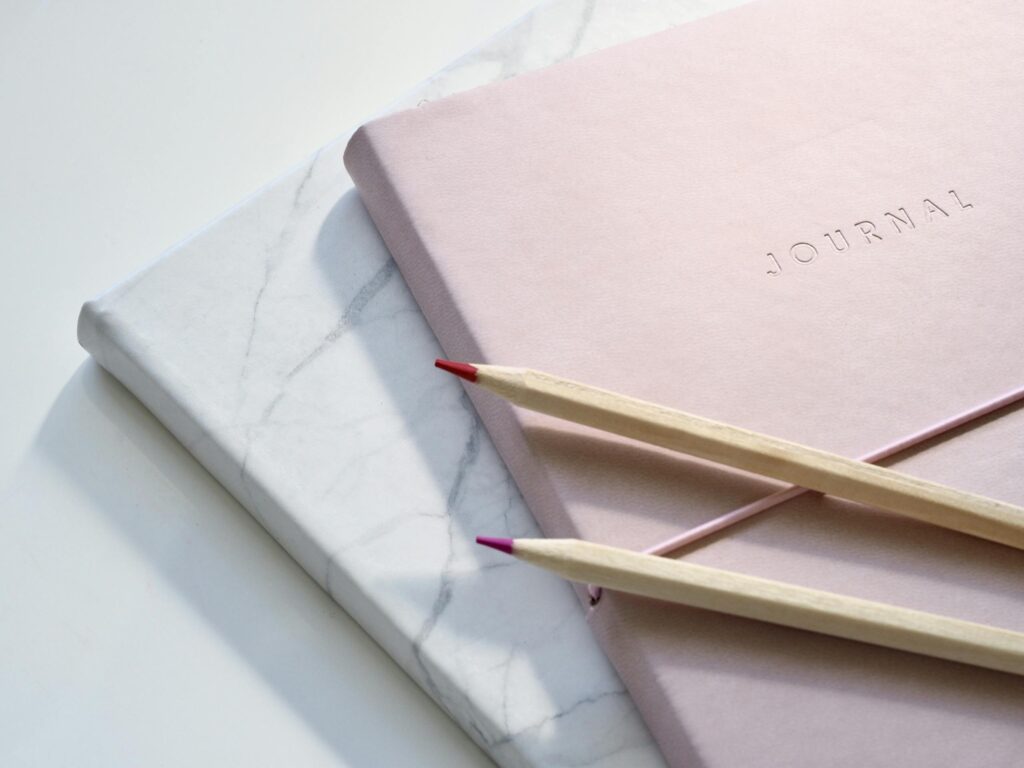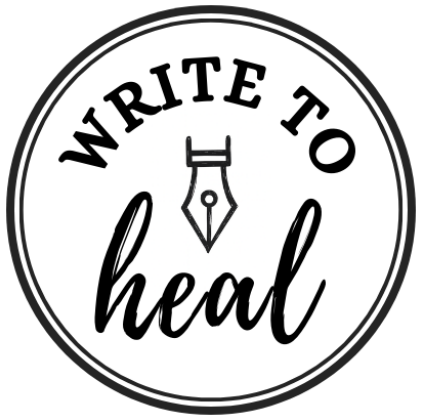10 Journaling Myths That Might Be Blocking You (and the Truth Behind Them)
Think journaling isn’t for you? These 10 journaling myths stop people from writing. Learn the truth plus research and personal stories to inspire your practice.

When people tell me they want to journal more often, what usually follows is a list of reasons they feel stuck. These reasons sound logical but most of the time they are really journaling myths.
I know, because I’ve believed many of them myself. Journaling has been part of my life since childhood, but it wasn’t until therapy and seasons of burnout recovery that I discovered how much of my resistance came from myths I had absorbed without realizing it.
If you’ve ever thought journaling takes too much time or that you’re not “enough” of a writer, this list is for you.
Quick list of myths
- If I think it through in my head, journaling won’t add anything
- Journaling is only for writers
- You need lots of time to journal
- You have to journal every day
- You must fill pages
- You need a beautiful notebook
- Journaling is just keeping a diary
- Journaling is self-indulgent
- It only works if you are brutally honest
- You need to know what to write
- Bonus Myth – Journaling should always feel good
Myth 1: If I think it through in my head, journaling won’t add anything
Truth: Writing it down is different. The act of writing itself has benefits your thoughts alone can’t give.
My story: I used to tell myself that I didn’t need to journal because I was already “processing” in my head. But what I noticed is that my thoughts would circle endlessly, never landing anywhere. When I write them down, something shifts. Seeing the words on the page slows me down, helps me untangle the knots, and leaves me calmer. The act of writing becomes its own kind of meditation.
Evidence:
- Research shows that writing accesses different cognitive and emotional pathways than silent thinking, which helps regulate emotion and reduce rumination (Harvard Health).
- Expressive writing has been compared to mindfulness practices, showing improvements in stress, self-awareness, and emotional regulation similar to those gained through meditation (PMC article).
- A review of positive expressive writing found that participants often experienced states of flow and calm while writing, echoing the neurological patterns of meditation (PLOS One, 2024).
Takeaway: Thinking is helpful, but writing brings clarity and peace. The page becomes a container that holds your thoughts so your mind doesn’t have to.
If you’re curious to try for yourself, I created a Free Journaling Kit for Healing with prompts that are simple enough for beginners and still meaningful for longtime journalers:
Myth 2: Journaling is only for writers
Truth: Journaling is for everyone.
My story: I used to believe journaling was something “real writers” did, people who filled stacks of notebooks with profound thoughts. But some of my most healing entries have been messy scrawls written while crying in the middle of the night. During my hardest struggles, I’ve found that sleeping with a journal next to my bed helps me write a few thoughts before I fall asleep or after I wake up, which is sometimes the only free time I have during the day for journaling.
Evidence:
- Classic research on expressive writing shows benefits for stress reduction, physical health, and mood regardless of writing skill (Pennebaker & Beall, 1986).
- A meta-analysis of 146 studies found significant improvements in physical and psychological functioning from expressive writing across diverse populations (Frattaroli, 2006).
Myth 3: You need lots of time to journal
Truth: Even a few minutes is enough.
My story: When my son was little and I was barely sleeping, I thought I didn’t have time to journal. I learned (the hard way) that deprioritizing time for myself wasn’t good for anyone in my family. What surprised me was how much difference it made to jot down just a single word, sentence, or paragraph at the end of the day.
Evidence:
- Positive affect journaling reduced anxiety and stress in patients with elevated distress after just one month of practice (Smyth et al., 2018).
- Meta-analysis shows expressive writing interventions produce measurable benefits even in short sessions (Reinhold et al., 2022).
💡 If short and simple appeals to you, pair your practice with a slim, portable notebook like the Field Notes Original Kraft.
Myth 4: You have to journal every day
Truth: Journaling works even when it’s occasional.
My story: There are whole seasons when my journal sits untouched. But when I return to it during a bout of depression, after a hard work week, or while sitting by the lake at our cabin, it greets me like an old friend. I consider myself an “active journaler” and I still only fill one notebook per year. That quantity feels like enough for me and it might feel like too much/not enough for other people. Find what works for you ❤️
Evidence:
- Many expressive writing protocols involve 3–5 sessions over one week, not daily forever (Pennebaker, 1997).
- Benefits appear stronger with multiple sessions, but frequency varies by person (Frattaroli, 2006).
💡 If you find yourself with time to splurge on a solo writing retreat, check out my guide to planning a solo writing retreat.
Myth 5: You must fill pages
Truth: A single sentence can be powerful.
My story: I used to pressure myself to fill at least one full page. These days, some of my favorite entries are half a line: “I feel lighter today.” “I’m afraid of failing.”
Evidence:
- Short, structured prompts like gratitude lists show benefits for mood and well-being (Burt & Obradović, 2013).
💡 If blank pages feel intimidating, prompts help. You’ll find some in my Free Journaling Kit for Healing.
Myth 6: You need a beautiful notebook
Truth: You don’t.
My story: As much as I love a fresh Leuchtturm1917 journal (my favorite), I’ve also journaled on the back of receipts, in my phone’s notes app, and on library scrap paper.
Evidence:
- Studies show outcomes depend more on emotional engagement than the medium used (Baikie & Wilhelm, 2005).
💡 If a beautiful notebook does motivate you, I recommend the LEUCHTTURM1917 A5 Dotted Hardcover in Forest Green, my personal go-to.
Myth 7: Journaling is just keeping a diary
Truth: Journaling can be many things.
My story: As a teen, I wrote daily events. As an adult, journaling has become more of a survival tool: prompts from therapy, lists of needs and feelings, even drawings.
Evidence:
- Expressive writing differs from diaries, focusing on feelings and meaning rather than recounting events (Smyth, 1998).
- Positive journaling techniques such as gratitude and best-possible-self also produce unique benefits (Burton & King, 2004).
💡 Explore current approaches in my post on journaling trends in 2025.
Myth 8: Journaling is self-indulgent
Truth: Journaling is a tool for resilience, not selfishness.
My story: I used to feel guilty taking time to journal when the house was a mess. But I noticed when I skipped it, I was shorter with my family and I was less satisfied with my life. Journaling helps me return with more patience.
Evidence:
- Emotional approach coping, or processing emotions instead of avoiding them, predicts better adjustment (Stanton et al., 2000).
- Journaling reduces stress and strengthens immune response (Harvard Health).
Myth 9: It only works if you are brutally honest
Truth: Start safe, honesty grows with time.
My story: In my early therapy journals, I softened what I wrote, afraid someone might find it. Even partial writing helped. Over time, honesty came naturally. I’ve had a few conversations with my spouse about how my journal is personal and I asked him to not read it. I trust that he’s respecting my request which helps me be more honest in my journal. I also tend to leave it in a private place so my kids don’t find it.
Evidence:
- Emotional expressiveness moderates journaling outcomes, but benefits occur even when writing is less intense (Smyth, 1998).
💡 For gentle structure, try The Five Minute Journal, a guided option with prompts.
Myth 10: You need to know what to write
Truth: You don’t.
My story: Some days my journaling begins with “I don’t know what to say.” Starting with that line and continuing to write for a while often cracks something open.
Evidence:
- Open-ended prompts often lead to benefits without needing a set topic (Lepore & Greenberg, 2002).
- Gratitude and best-possible-self prompts also provide effective scaffolding (Burton & King, 2004).
💡 A smooth pen can make starting easier. I love the Paper Mate Ink Joy gel pens.
Bonus Myth: Journaling should always feel good
Truth: It may feel heavy before it feels light.
My story: I’ve had entries where I closed the notebook feeling worse. Later, I could see those words were the start of release. But in general, journaling usually does leave me feeling better.
Evidence:
- Journaling can temporarily increase distress before reducing it (Harvard Health).
- Long-term studies show consistent reductions in negative affect (Baikie & Wilhelm, 2005).
Closing thoughts
If any of these journaling myths have held you back, let my story and the research together be your encouragement. You don’t need to be perfect. You don’t need to write every day. You don’t need a special notebook. What you need is a willingness to begin, even with just a word.
✨ Want help starting? Download my Free Journaling Kit for Healing with gentle prompts designed to meet you exactly where you are.
* As an Amazon Associate, I earn from qualifying purchases. This post contains affiliate links. That means I may earn a small commission if you choose to purchase through my links, at no extra cost to you. I only share products I personally use and love.
